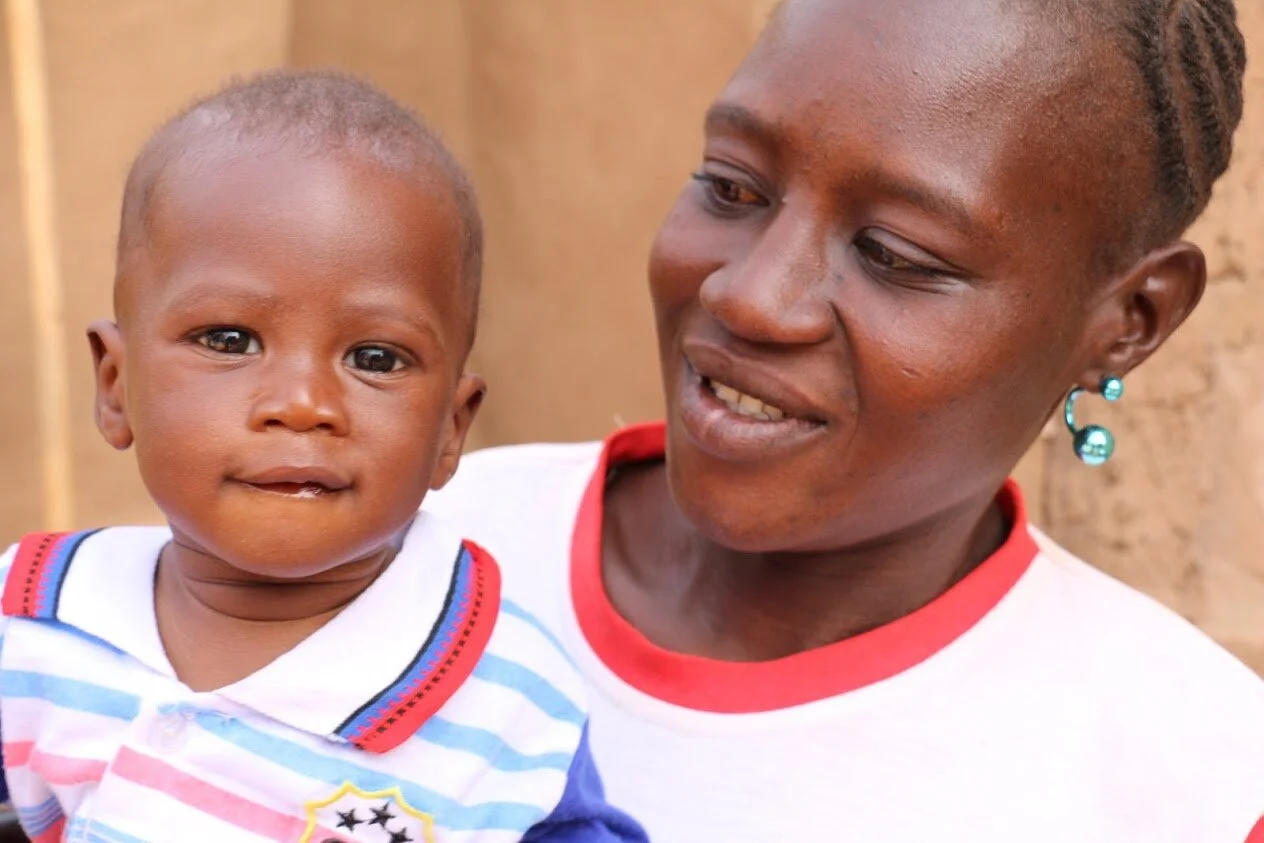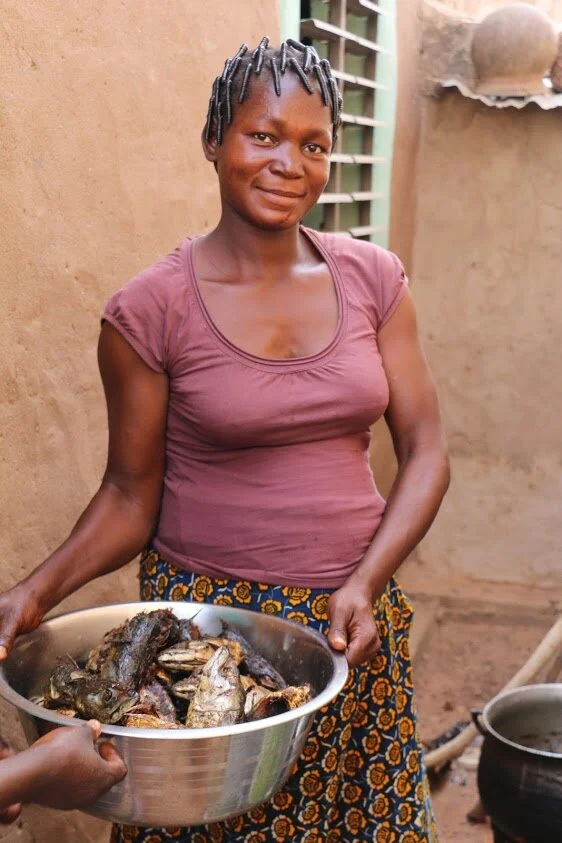About Us
In Saaba, a neighbourhood of Burkina Faso’s capital, Ouagadougou, a group of formidable widows are supporting each other and pushing back on the illegal cultural practice of widow pillaging. These brave widows of all ages, along with their father-orphaned children, started the Saaba Widows Business Association (SWBA). They mutually support each other and purpose to assist new and old widows with starting up their own businesses and to stop the unfortunately common practice of widow pillaging.
What is widow pillaging?
Too often, in-laws steal from their widowed sister-in-law after her husband has passed away. The in-laws often take the furniture, farm tools, vehicles, house and land that the couple had accumulated together — sometimes within 24 hours of her husband’s passing. In-laws feel all the couple’s belongings are shared conditional only upon marriage. Instead of grieving with their sister-in-law, in-laws often ransack the home and evict the grieving family to steal their house and land.
Africa is a challenging place for women
Out of the 1.2 billion people who live on the continent of Africa, 10% of women and girls 15 and older are widows.
25% of African households are headed by women. Except in the cases of widows, households headed by women do increasingly better than households led by men.
Burkina Faso has over 20 million people. In 2019, it was the 8th poorest country in the world. As a result, it has few if any support systems for women, children and families.
Widows rarely re-marry, while men are rarely widowed for long.
Widow pillaging is an illegal but common practice in most of Africa.
The widow’s in-laws often take her possessions soon after her husband dies.
The widow’s in-laws also used to steal her children. Fortunately, this happens less now as the in-laws are concerned that children have too many legal rights.
HIV and conflict significantly increase the number of widows
Many widows are illiterate and unemployment/under-employment in Burkina is about 70%. In order to make money, starting a small business is likely the only option.
In neighbouring Mali, widows are found to disproportionately head the poorest households.
How SWBA helps
SWBA is a joint partnership between Burkina Faso and Canada to collaborate with widows and their children who have been affected by the illegal cultural practice of widow pillaging.
Our actions to support the women and children affected by the illegal cultural practice of widow pillaging include:
Gathering widows for mutual support and collective work bees to learn how to and then make soap, loom traditional cotton fabric, make peanut butter, etc.
Bring widows together for literacy and health/hygiene training
Provide intensive garden/permaculture training
Offer widows and older orphans small business training, as well as a $500 micro-loan
Educate the public about widow pillaging, including advocacy to induce change
Advocate to decision-makers in the government to improve response and legal action towards the illegal cultural practice of widow pillaging
Assist women to write wills to protect themselves in the event of their husband’s death
Partner with other widow’s and women’s networks to promote widow rights
About Burkina Faso
Burkina Faso is a landlocked country in West Africa with just over 21 million people. It is about the same size as New Zealand and is surrounded by six countries: Mali to the north; Niger to the east; Benin to the southeast; Togo, Ghana and Côte d’Ivoire to the south. Burkina Faso was formerly named Haute Volta by its French colonial power, which references the headwaters of the 3 Volta rivers that flowed south toward Volta Lake in Ghana. In 1983, there was a revolution that brought renewed pride in African identity and the country chose the name Burkina Faso that means “people of dignity” who are “living in the land of their ancestors”.
With very few natural resources and commerce, the 2019 United Nations Human Development Report states that Burkina Faso is the eighth poorest country in the world. However, Burkina Faso has significant cultural power in the continent of Africa as it hosts both the Panafrican Film and TV Festival of Ouagadougou and the International African Artisan Trade Show.



